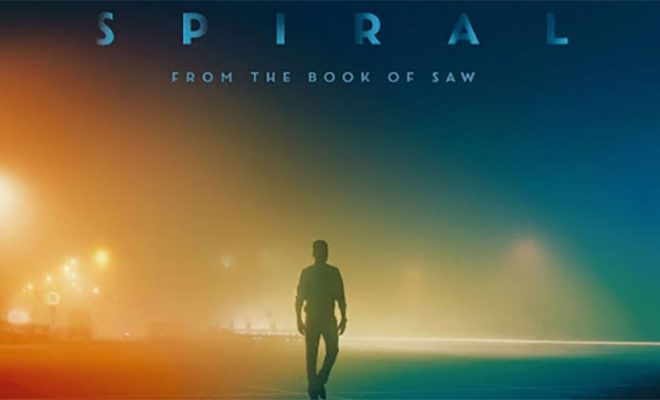
Movie Reviews
Spiral
By: Maggie Stankiewicz
Spiral is the ninth installment of the Saw franchise and director Darren Lynn Bousman’s fourth directorial credit within the Jigsaw universe. Spiral is a few degrees removed from its predecessors and doesn’t follow the standard formula or involve the original film’s antagonist. The film depicts a peripheral story from within the Saw universe but holds no true relation to the original story. This bold narrative move could have come at a detriment to the integrity of the franchise, but as it turns out, Spiral was just what this sleepy, splattery series needed. The movie holds onto the finer aspects of Saw films while injecting a fresh whodunnit element that appeals to thriller fans and Jigsaw groupies alike.
Seasoned horror director Darren Lynn Bousman is no stranger to the dark, textured grittiness of the Saw universe. Each of his horror films are infused with the grungy, grey overtones signature to the franchise. Bousman’s strong visual style and token moodiness work perfectly to develop the look and feel of Spiral, which cuts through the tension with sardonic and oftentimes gallows humor.
Spiral takes its sacred duty as a horror film seriously and offers poignant social commentary that is both subtle and…not so much. The movie opens at a Fourth of July parade, thrusting audiences into the center of a chaotic chase scene between off-duty crooked copy Detective Bozwick (Dan Petronijevic) and an unidentified thief. Within moments, Bozwick is suspended in a subway tunnel faced with the decision to remove his tongue or be flattened by an oncoming subway car. He doesn’t choose fast enough. The kill has all the hallmarks of a classic Jigsaw death, but something isn’t adding up.
Down and out Detective Zeke Banks (played by Chris Rock in a shockingly powerful performance) fights for his right to handle the case, much to the chagrin of his dirty department. Zeke was exiled long ago for “ratting out” his dirty ex-partner and is bullied, tormented and often abandoned by his fellow cops. Zeke’s representation in the film is a heavy-handed portrayal of the way “good cops” are often disempowered by a broken system and depicts the ease at which a “good cop” can quickly become one of the bad ones. This is just one of many topical observations made by Spiral, making the film a more accessible vehicle for commentary than its harder-to-swallow Saw ancestors.
It soon becomes clear that Zeke is a person of interest for this Jigsaw copycat killer, as clues are addressed directly to him – and each subsequent death can be traced back to relationships Zeke once held with cops on the force. It isn’t until Zeke partners with a rookie detective named William (Max Minghella) that he has a single true ally on the force. This bond only steels the resolve of the killer to put Zeke on a pedestal for his moral superiority – and Max falls prey to the killer when Zeke is unable to put the pieces of the puzzle together.
These complex and high-stakes relationships are what sets Spiral apart from its torture porn brethren. The Saw films certainly have their place in our culture, but Spiral makes the formula and the message more palatable to the masses. With more intricate kills and a focus on interpersonal bonds, Spiral is more of a psychological thriller than a stone-cold horror film. The movie is also filled with twists and turns, earning its namesake and engaging audiences until the final reveal. Yes, Spiral has intricate kills that will make you cringe, but it’s the emotional stakes that make this film a standout.





You must be logged in to post a comment Login